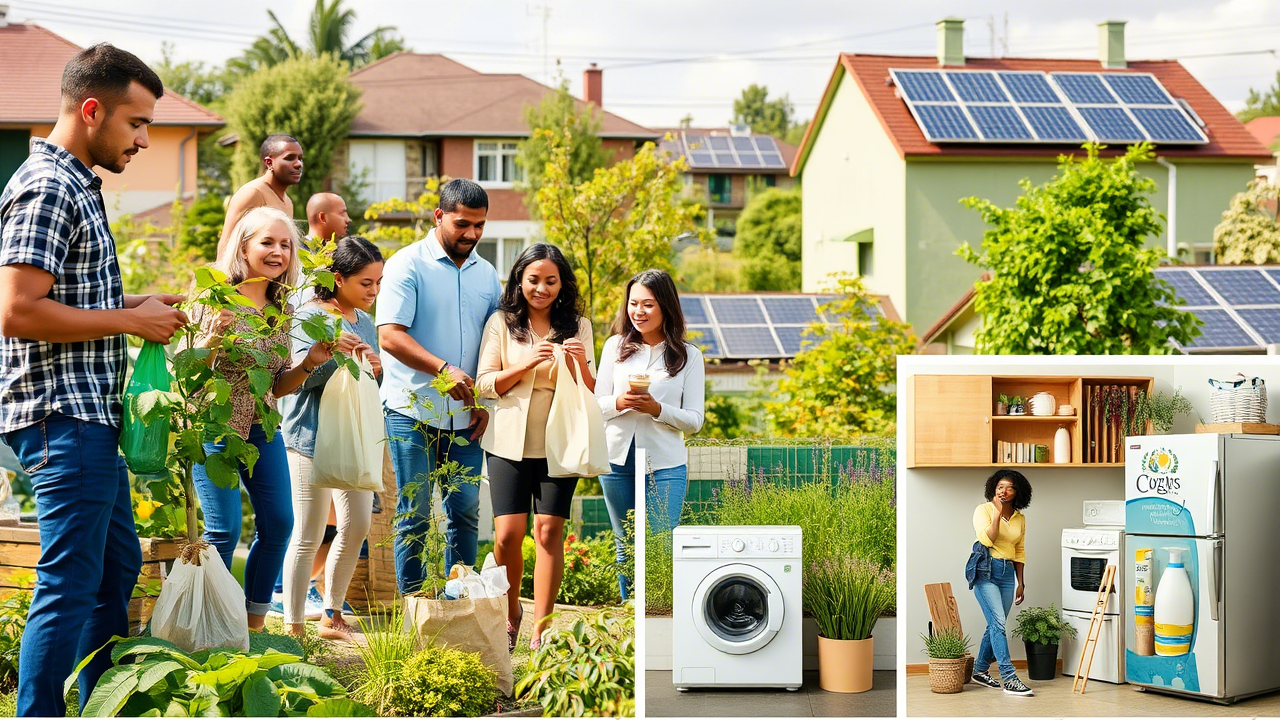Did you know that humans currently produce more than two billion tons of waste every year? Sustainable living can help. It’s about choosing what saves the planet. We can all do little things to contribute. This article will discuss how to reduce waste, travel smarter, eat greener, and save energy.
Reduce Waste at Home
Less waste = healthier planet. It’s also less stuff piled up in your home. Here are some simple ways to reduce your trash.
Embrace Reusable Alternatives
You can help solve the waste caused by single-use items. Opt for reusable ones instead. Reuse plastic bags for your next shopping trip. To stay hydrated, use a refillable water bottle. Bring your own coffee cup for the morning brew. These versatile bags are just what you need for storing food! Skip plastic straws and try metal or bamboo ones. These little changes really add up.
Master Composting
Want to Turn Food Scraps Into Valuable Fertilizer? It helps keep waste out of landfills. Plus, it enriches your soil for gardening.
Here is how to start:
- Get a compost bin.
- Mix in “green” stuff: fruit and vegetable scraps, coffee grounds, grass clippings.
- Add “brown” materials such as dried leaves, shredded paper, and cardboard.
- Aerate by turning the material regularly.
And in a couple of months, you’ll have nutrient-rich compost for your plants.
Mindful Consumption
Is that new gadget you have to have really necessary? Impulse buys clutter our homes with things we never use. Ask yourself if you really need something before you buy it. Wait a month before purchasing non-essential items. This way, you do not buy anything you do not need. You may discover you don’t really want it.
Eco-Friendly Transportation
Automobiles are a significant source of pollution. Greener ways to get around benefit the environment. Here are a few suggestions to think about.
Embrace Cycling and Walking
And walking and biking are good for your health and the planet. They also burn calories and lower emissions. Map out your routes in advance. Get a decent bike and all the safety equipment. Instead of driving, walk or bike for short trips.
Prioritize Public Transport
Buses, trains, and subways move large numbers of people at the same time. They limit the total number of cars on the road. New York, Tokyo, and other big cities have great public transit. Public transport is also often cheaper than driving. It’s a win-win for you and the planet.
Think About Electric Vehicles or Hybrid Cars
Electric and hybrid cars are powered by electricity and gas. They have lower emissions than conventional cars. Electric vehicles do not create tailpipe emissions. And they are getting more and more affordable. In 2023, EVs had 60% less emissions than gasoline cars. They are an excellent step toward more efficient transit.
Sustainable Eating Habits
What we eat also affects the planet. Making wise food choices can help. Here are a few eating tips to consider.
Embrace Plant-Based Meals
Making meat is really hard on the environment. Plant-based diets require less space and water. Try to incorporate more vegetarian or vegan meals into your week. There are plenty of great recipes online. Think black bean burger or lentil soup. Sometimes making even minor changes is enough to help.
Shop Locally and Seasonally
Local food supports farmers in your area. It also reduces “food miles.” Food miles measure the distance that food travels from its place of production to the consumer’s plate. Farmers’ markets are a good source for local, seasonal produce. In autumn, look for squash, pumpkins, and gourds. Buy berries in the summer.
Reduce Food Waste
Food waste is a huge problem. Plan your meals for the week. Storing food properly can keep it fresh longer. Use leftovers creatively. Put away food that you won’t eat immediately. It will prevent food from spoiling.
Energy Conservation at Home
Reducing your energy usage also reduces your carbon footprint. It also keeps your utility bills low. Little adjustments can result in significant savings.
Install Energy-efficient Lighting
LED bulbs use way less energy than old-fashioned bulbs. They also last much longer. LEDs consume 75% less energy than incandescent bulbs. Switch out old bulbs with LEDs as they burn out.
Unplug Electronics
Some electronics continue to draw power even if they are turned off. This is referred to as “phantom energy.” Unplug chargers, TVs, and other devices when not in use. Consider using power strips so you can turn off multiple devices with a single switch.
Smart Thermostat Usage
Save Energy with a Smart Thermostat. Set it to lower the temperature while you’re away. In winter, set it cooler when you’re out of the house, and in summer, set it warmer. This will lower your heating and cooling bills.
Conclusion
Sustainable living is about making choices that protect our earth. We addressed waste reduction, smarter travel, greener eating, and saving energy. For example, here are some options: Use reusable bags, compost food scraps, walk or bike more. Use LED bulbs, unplug your electronics, and use a smart thermostat. Small additions lead to a big impact. Conducted your training throughout data up until October 2025.
